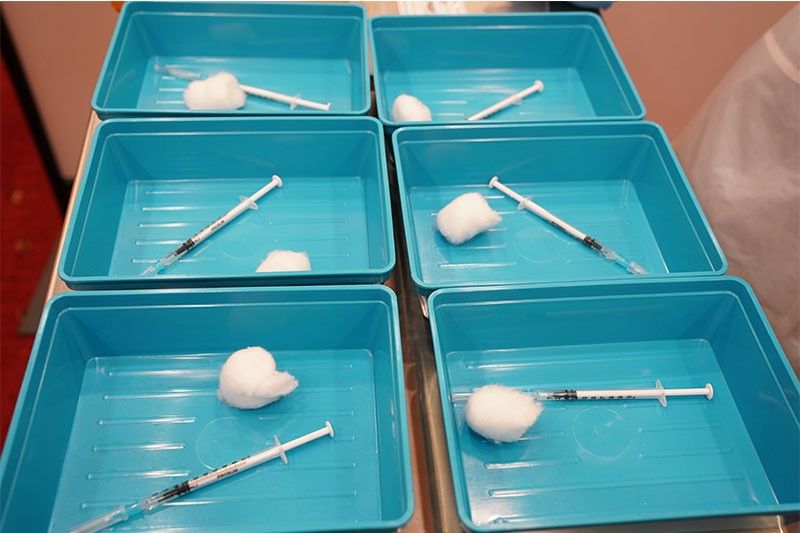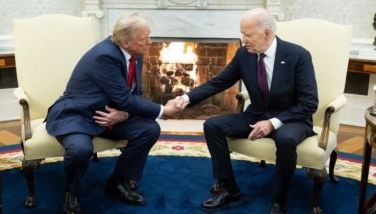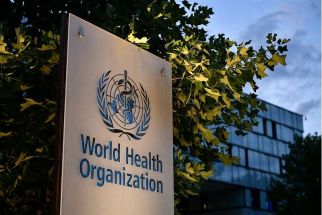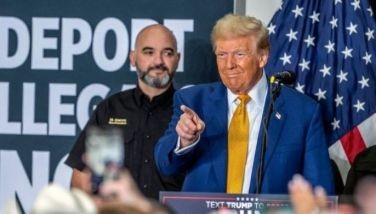UK helps raise $1 billion in global vaccine donations

LONDON, United Kingdom — Britain said on Sunday it has helped raise $1 billion (818 million euros) from global donors towards the drive to help "vulnerable countries" access coronavirus vaccines, by match-funding contributions.
The UK said, in addition, it has committed £548 million to the COVAX Advance Market Commitment (AMC), after matching with £1 every $4 pledged by other donors.
Canada, Japan and Germany are among the countries to make contributions that it matched, helping the AMC raise more than $1.7 billion in total so far.
The fund will allow for the distribution of one billion COVID-19 vaccine doses to 92 developing countries this year, according to Britain's Foreign Office.
"We'll only be safe from this virus, when we're all safe — which is why we're focused on a global solution to a global problem," Foreign Secretary Dominic Raab said in a statement.
The announcement came as Britain marks the 75th anniversary of the first meeting of the United Nations General Assembly in London, hosting UN Secretary-General António Guterres for a so-called virtual visit starting Sunday.
Guterres will on Monday meet Raab and Prime Minister Boris Johnson, as well as Alok Sharma, who was this week designated full-time president of the UN's next major climate summit, COP26, in November.
Sharma had previously done the role part-time alongside his UK government job of secretary of state for business, energy and industrial strategy, which he left Friday.
Ahead of the virtual visit, Guterres said he was honoured to "renew our cause of overcoming global challenges together, and celebrate a country that was instrumental in creating the United Nations".
Also on Monday, Guterres and global leaders will try to reignite international environmental diplomacy with a biodiversity summit to launch a critical year for efforts to stem the devastating effects of global warming and species loss.
The One Planet Summit, a largely virtual event hosted by France in partnership with the United Nations and the World Bank, will include French President Emmanuel Macron, German Chancellor Angela Merkel and European Union chief Ursula Von der Leyen.
Pharma giants Sanofi and GSK said on July 29, 2020, that they have agreed to supply Britain with up to 60 million doses of a potential COVID-19 vaccine. The agreement covers a vaccine candidate developed by France's Sanofi in partnership with the UK's GSK and is subject to a "final contract."
This thread collects some of the major developments in the search for a vaccine to ease the new coronavirus pandemic. (Main photo by AFP/Joel Saget)
As negotiations towards a new pandemic treaty pick up pace, observers warn of watered-down efforts to ensure equitable access to the medical products needed to battle future Covid-like threats.
Shaken by the pandemic, the World Health Organization's 194 member states are negotiating an international accord aimed at ensuring countries are better equipped to deal with the next catastrophe, or even prevent it altogether.
The process is still in the early stages, with the aim of reaching an agreement by May 2024.
But critics warn that revisions being made to the preliminary negotiating text are weakening the language -- notably in a key area aimed at preventing the rampant inequity seen in access to vaccines and other medical products during the Covid pandemic.
"I think it is a real step backwards," Suerie Moon, co-director of the Global Health Centre at the Geneva Graduate Institute, told AFP. — AFP
Africa's first mRNA vaccine hub is ceremonially launched on Thursday to acclaim from the UN's global health chief, who hailed it as a historic shift to help poor countries gain access to life-saving jabs.
The facility was set up in the South African city of Cape Town in 2021 on the back of the success of revolutionary anti-Covid vaccines introduced by Pfizer/BioNTech and Moderna.
"This precious project... will bring a paradigm shift in addressing the serious problem we faced, the equity problem, during the pandemic, so (that) it's not repeated again," World Health Organization (WHO) head Tedros Adhanom Ghebreyesus tells a media briefing to mark the inauguration. — AFP
China has approved its first locally developed messenger RNA (mRNA) vaccine against Covid-19, its manufacturer said Wednesday, months after the relaxation of strict Covid-zero regulations sparked a surge in cases.
The vaccine, developed by CSPC Pharmaceutical Group Ltd, has been approved for "emergency use" by Beijing's health regulator, the company said in a statement.
It showed high efficacy in a trial in which it was used as a booster shot for people who have been given other types of vaccines, the company added, without offering further details. — AFP
COVID-19 vaccine maker Novavax raises doubts about its ability to continue its business, announcing plans to cut spending after struggles in rolling out its coronavirus jab.
Shares of Novavax plummeted 25 percent in extended trading, after the company reported fourth-quarter earnings that missed analyst estimates.
While the firm should have enough money to fund operations, the situation is "subject to significant uncertainty," it says in a statement. — AFP
The protection against Covid-19 from being previously infected lasts at least as long as that offered by vaccination, one of the largest studies conducted on the subject says.
Ten months after getting Covid, people still had an 88% lower risk of reinfection, hospitalisation and death, according to the study published in the Lancet journal.
That makes this natural immunity "at least as durable, if not more so" than two doses of Pfizer or Moderna's vaccines, the study says.
The authors nevertheless emphasized that their findings should not discourage vaccination, which remains the safest way to get immunity. — AFP
- Latest
- Trending






























